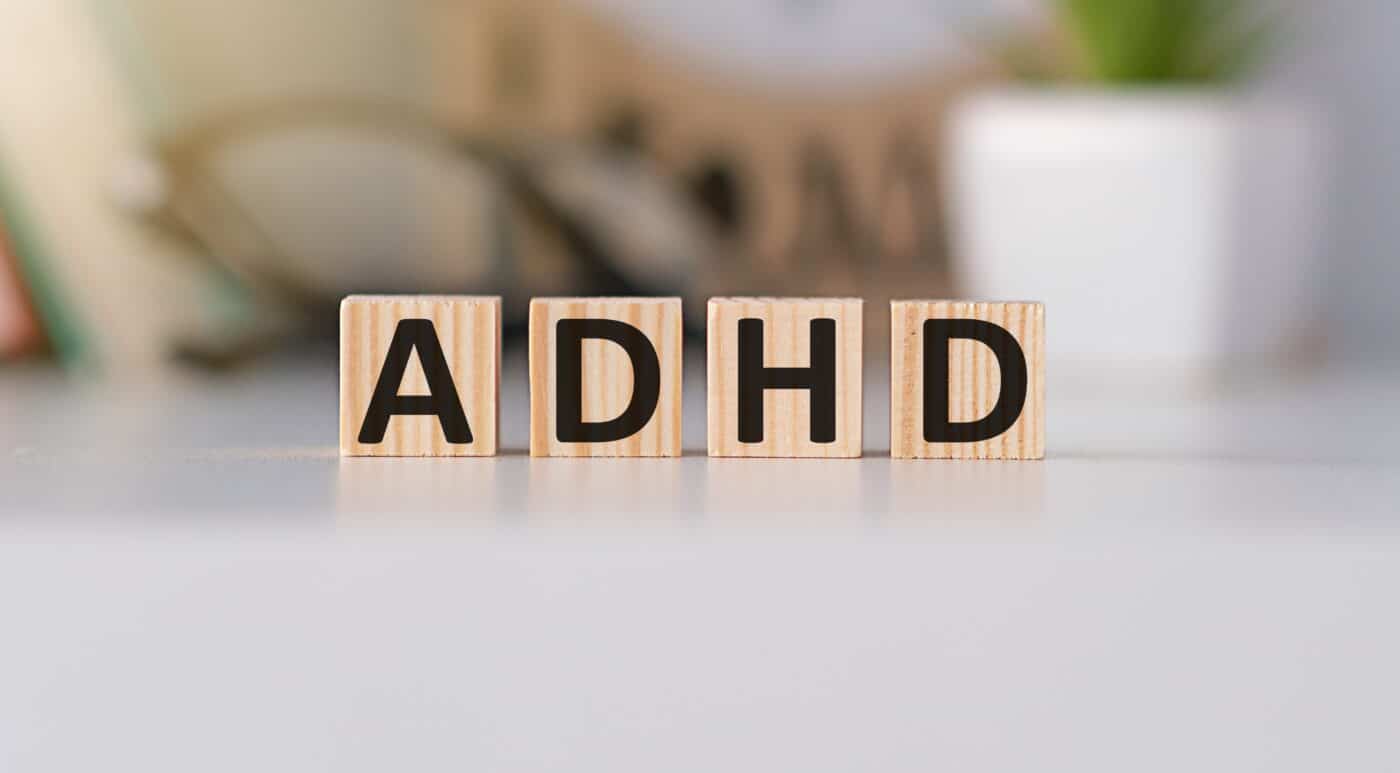ADHD Assessment: What It Is & How Testing Supports Diagnosis

You know that feeling when you walk into a room and instantly forget why? Or when your calendar is a rainbow of reminders to keep you on track? Now imagine those moments aren’t occasional. They’re your everyday reality. For someone with attention deficit hyperactivity disorder (ADHD), it’s not just about being forgetful or disorganized; it’s about living in a world that often misunderstands a brain wired to work differently. In this blog, you’ll learn more about what ADHD is and how psychological assessments can help clear the confusion so you can finally see and understand the full picture.
What Is ADHD? How Psychological Assessment Helps Diagnose and Understand It
What Is ADHD? Understanding the Basics
Before we address “What is ADHD and how is it diagnosed?”, it’s worth discussing what it isn’t first.
ADHD isn’t a sign of laziness, lack of intelligence, or poor parenting. It’s not a moral failing, a character flaw, or something you can “snap out of” with more willpower. And it’s certainly not a one-size-fits-all experience. It exists on a spectrum, and no two people with ADHD think, feel, or respond in the same way.
Scientifically, ADHD — Attention-Deficit/Hyperactivity Disorder — is recognized in the DSM-5 as a neurodevelopmental condition that affects patterns of attention, activity level, and impulse control.
Sometimes clients ask “What does ADHD do to a person?” To increase your understanding, ADHD symptoms can appear as;
- Inattention (like trouble staying focused or finishing tasks)
- Hyperactivity (restlessness, fidgeting, or constant movement)
- Impulsivity (acting quickly without thinking)
- Or a combination of these traits.
- ADHD symptoms must be present in more than one setting, such as at home, school, or work and begin before age 12, even if they aren’t recognized until later in life.
At its core, it’s a difference in how the brain processes information, regulates attention, and manages impulses. That difference can create unique challenges but also remarkable strengths.
When we clear away the myths, what we’re left with is the truth: Attention deficit hyperactivity disorder is not a limitation on your potential. It’s simply part of your wiring and understanding that is the first step toward harnessing your abilities, finding strategies that work for you, and thriving on your terms.
Why an Accurate ADHD Diagnosis Matters

Getting the right ADHD diagnosis isn’t just about putting a label on your experiences. It’s about finally getting answers that make sense of your life. For years, you might have wondered why focusing feels like running uphill with no oxygen, why your brain seems to function on a different operating system, or why strategies that work for everyone else leave you feeling more frustrated than before.
An accurate ADHD diagnosis opens doors you didn’t even know were closed.
- It connects you with ADHD treatments that actually work for your brain
- Helps you understand your strengths alongside your challenges
- Validates experiences that others might have dismissed as a lack of effort.
- More importantly, it gives you permission to stop fighting against your brain and start working with it.
When psychologists diagnose ADHD, you can make informed choices about everything from career paths to relationships. You can advocate for what you need and stop wasting energy on approaches that were never going to work for your neurotype. It’s the beginning of understanding yourself in a whole new way.
What to Expect from a Psychological Assessment for ADHD
What should I expect during an ADHD assessment at a clinic? Walking into an ADHD assessment can feel intimidating. But it’s not a pass-or-fail test. It’s a collaborative process designed to help you understand how your brain works and how ADHD may be affecting your daily life.
What does a psychological assessment for ADHD involve?
Here’s how it typically unfolds:
- Comprehensive Conversation:
- You’ll meet with a psychologist to discuss your personal history, from early childhood to the present
- Expect questions about school, work, relationships, and daily routines.
- This is not about judgment — it’s about building a complete picture of your experiences.
- Standardized Questionnaires
- You may complete evidence-based rating scales that measure attention, focus, and related behaviors.
- Cognitive and Attention Tasks
- Some psychological assessments include brief, computerized exercises that track reaction times, focus, and working memory.
- These are designed to reveal patterns that may not come up in conversation alone.
- Collateral Input (If You Choose)
- With your consent, the psychologist may speak with parents, partners, close friends, or former teachers.
- This can provide additional insight into how ADHD symptoms appear across different settings.
- Timeframe and Feedback
- How long does an ADHD psychological evaluation take? Psychological assessments typically take several hours, often split into multiple sessions.
- You’ll receive a detailed summary and recommendations tailored to your unique needs and goals.
Bottom line:
An ADHD assessment is about clarity. It’s your opportunity to understand your brain better and explore the strategies, supports, and resources that can help you thrive.
How ADHD Presents Differently in Children vs. Adults
How can I tell if I or my child has ADHD? When You’re a Child, ADHD Often Looks Like:
- The kid who can’t stay seated during story time, legs bouncing under the desk
- Blurting out answers before the question’s finished
- Misplacing books, backpacks, and homework. Sometimes all in one day
- Teachers calling home because the signs are loud, constant, and impossible to miss
How is ADHD different in adults vs. children? ADHD doesn’t disappear when you turn 18. It changes shape.
Many adults, especially women, spend years thinking they’re simply “scatterbrained” or “too sensitive,” never realizing they’ve been living with attention deficit hyperactivity disorder all along.
That’s because the loud, visible signs people notice in children can fade into quieter, harder-to-spot struggles in adulthood.
When You’re an Adult, ADHD Often Looks Like:
- Feeling a constant hum of restlessness inside, even while sitting perfectly still
- Jumping into new jobs, relationships, or big purchases without thinking them through, then wondering why you did it
- Struggling to keep up with bills, deadlines, or laundry, even when you’re trying so hard
- Wondering if your anxiety, depression, or burnout is really something else
- Holding it all together until life piles on more than your coping skills can cover
Adult ADHD often masquerades as mental disorders or mental health disorders, such as anxiety or depression. As a result, many develop elaborate coping mechanisms that hide their struggles until life demands exceed their ability to compensate.
Why This Matters:
Attention deficit hyperactivity disorder doesn’t come with an expiration date. Recognizing the adult version of these ADHD symptoms can be life-changing. It’s not too late to get answers, to understand yourself differently, and to finally find tools that work for you.
The Role of Psychological Testing in ADHD Treatment Planning
Think of psychological testing as creating a personalized roadmap for your journey. It’s not just about confirming whether or not you fit the diagnostic criteria for ADHD. It’s about understanding exactly how your brain works so you can build an ADHD treatment plan that actually fits your life.

What are the benefits of getting tested for ADHD? The testing process reveals your unique cognitive profile:
- Where your attention thrives
- Where it struggles
- And how your working memory, processing speed, and executive functions all interact.
But you may be wondering “What type of assessment is used for ADHD?” And “What is the most reliable assessment for ADHD?”
Common gold-standard ADHD tests and what they reveal include:
- Conners Continuous Performance Test (CPT-3):
Measures sustained attention and impulse control by asking you to respond—or not respond—to certain visual cues. This helps pinpoint whether focus issues are due to ADHD or something else. - Wechsler Adult Intelligence Scale (WAIS-IV):
Assesses cognitive abilities like working memory and processing speed, showing how quickly you take in and use information. - Behavior Rating Inventory of Executive Function (BRIEF-2):
Gathers feedback from you (and sometimes parents or partners) about how you manage organization, planning, and self-control in daily life. - Woodcock-Johnson Tests of Cognitive Abilities:
Looks at problem-solving, learning efficiency, and memory patterns to identify strengths you can leverage. - Brown Attention-Deficit Disorder Scales:
Explores executive functioning in detail, especially how emotions and motivation affect your focus.
Your results might show that you focus better with background noise, struggle more with visual distractions, or have particular strengths in creative problem-solving. This information helps our diverse multi-lingual team recommend specific therapies, workplace accommodations, or lifestyle changes that align with how your brain actually operates.
Without this detailed understanding, ADHD treatment becomes guesswork. With it, you’re equipped with specific strategies that match your cognitive style.
- Maybe you need movement breaks every 20 minutes
- Or perhaps you work best with music playing.
- Maybe traditional organizational systems don’t fit your brain, but visual or color-coded approaches do.
Can a psychologist assess you for ADHD? Yes, definitely. Psychological testing transforms ADHD treatment from one-size-fits-all to a custom-tailored approach that honors your individual neurological makeup.
When to Consider Getting Assessed for ADHD
If you’re reading this section, chances are something inside you is already curious about whether ADHD might explain some of your experiences.
When should you consider a psychological evaluation for ADHD? Consider seeking a psychological assessment if you notice patterns that stick around despite your best efforts:
- You consistently underestimate how long tasks take, even when you try to be realistic.
- You hyperfocus on projects you enjoy for hours but can’t keep up with routine tasks for even ten minutes.
- You start several projects with enthusiasm but lose interest as the excitement fades.
- Major life changes often reveal ADHD traits that were once manageable:
- Starting college or a new job
- Becoming a parent
- Even positive changes like a promotion
- Don’t ignore the emotional side, either. Feeling chronically overwhelmed, underachieving, or sensing you have untapped potential that you can’t access consistently are all important signs.
Ready to Take the Next Step?
What is adhd? You don’t need to wait until things feel unmanageable. Getting assessed when you’re functioning well can be the best time, giving you the tools and clarity before challenges pile up.
So, if part of you wonders whether attention deficit hyperactivity disorder is part of your story, that curiosity alone is reason enough to explore.
We’re here to help. If you want to talk through what an assessment looks like, what to expect, or whether now is the right time for you, schedule your free consult and take the first step toward understanding your brain better.

